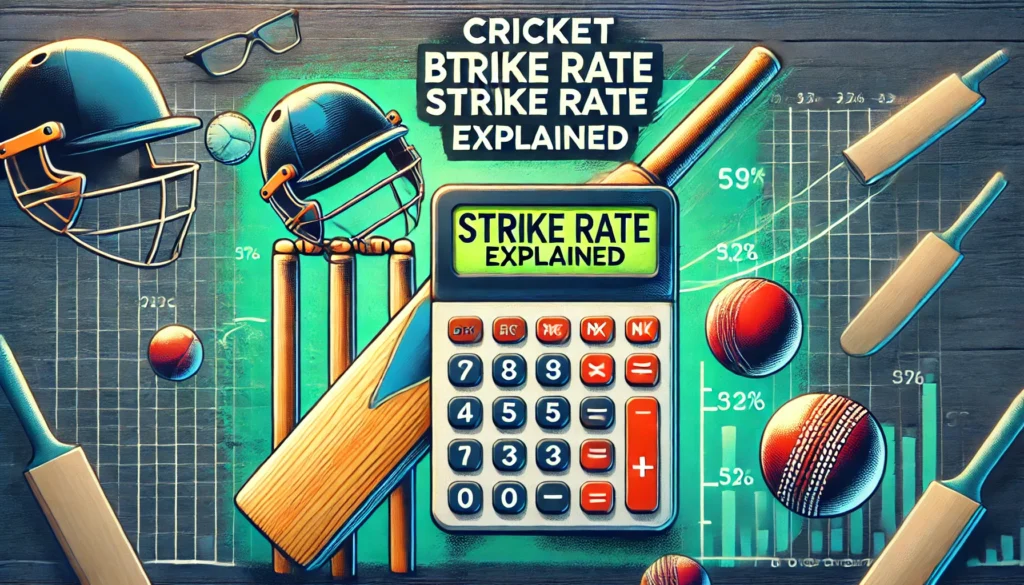🏏 Batting Strike Rate Calculator
What is Batting Strike Rate?
In cricket, the batting strike rate is a key metric used to measure a batter’s scoring speed. This statistic is critical in limited-overs formats like ODIs and T20s, where aggressive run-scoring is vital. Understanding how to calculate and improve your strike rate can make you a more valuable player in these formats. Whether you’re a beginner or a seasoned player, mastering the batting strike rate is essential to raising your game.
In cricket, the batting strike rate is a key metric used to measure a batter’s scoring speed. This statistic is critical in limited-overs formats like ODIs and T20s, where aggressive run-scoring is vital. Understanding how to calculate and improve your strike rate can make you a more valuable player in these formats. Whether you’re a beginner or a seasoned player, mastering the batting strike rate is essential to raising your game.
👉 Use the Batting Strike Rate Calculator below to analyze your performance and track improvements!
What is Batting Strike Rate?
Batting strike rate refers to how quickly a batter scores runs. It is calculated as the number of runs scored per 100 balls faced. The higher the strike rate, the quicker the batter scores, making them more impactful in limited-overs formats.
Batting Strike Rate Formula
The formula for calculating the batting strike rate is:Strike Rate=(Total Runs ScoredTotal Balls Faced)×100text{Strike Rate} = left(frac{text{Total Runs Scored}}{text{Total Balls Faced}}right) times 100Strike Rate=(Total Balls FacedTotal Runs Scored)×100
For example, if a batter scores 50 runs off 30 balls, their strike rate would be:(5030)×100=166.67left(frac{50}{30}right) times 100 = 166.67(3050)×100=166.67
Importance of Batting Strike Rate in Different Formats
- Test Cricket:
In Test cricket, strike rate is not as crucial as in limited-overs formats. Players focus on building long innings, and a lower strike rate (50-60) is acceptable for a batsman playing responsibly.
- Test Cricket:
- One Day Internationals (ODIs):
A good strike rate in ODIs is around 80-100. Openers and middle-order batsmen usually aim to score quickly to set a solid foundation or chase a target effectively.
- One Day Internationals (ODIs):
- T20 Cricket:
In T20s, batters are expected to be much more aggressive, with a strike rate of 120-150 or higher considered ideal. Big-hitters and finishers often score at strike rates of 160+ to maximize runs in a short span of time.
- T20 Cricket:
Factors Affecting Batting Strike Rate
Several factors influence a batter’s strike rate, including:
- Playing Conditions: Weather, pitch type, and stadium size all affect how quickly runs can be scored.
- Bowling Attack: Facing top-tier bowlers can make it harder to maintain a high strike rate.
- Shot Selection & Aggression: Batters who play more aggressive shots (e.g., boundaries) tend to have higher strike rates.
- Game Situation: Batters adapt their strategy based on the match situation—whether the team needs quick runs or steady accumulation.
How to Improve Batting Strike Rate?
Improving your strike rate requires a combination of skills, mindset, and preparation:
- Improve Shot Selection: Work on hitting more attacking shots without compromising your technique.
- Increase Fitness: Better fitness improves running between the wickets and the ability to hit more boundaries.
- Power Hitting Practice: Consistent practice with hitting against both pace and spin will enhance your strike rate.
- Play According to Match Conditions: Know when to accelerate and when to bat cautiously based on team needs.
Top Players with High Career Strike Rates (T20s & ODIs)
Some of the best batsmen with the highest career strike rates include:
🏏 Andre Russell – T20 Strike Rate: 169+
🏏 AB de Villiers – ODI Strike Rate: 101+
🏏 Virender Sehwag – Test Strike Rate: 82+ (extremely high for Test cricket)
🏏 Glenn Maxwell – T20 Strike Rate: 150+
Conclusion
The batting strike rate is a vital statistic in modern cricket, especially in shorter formats. By understanding the formula and continuously working to improve your strike rate, you can enhance your ability to impact the game.
💡 Want to calculate your own batting strike rate? Use the Batting Strike Rate Calculator above!
Table of Contents
Toggle



